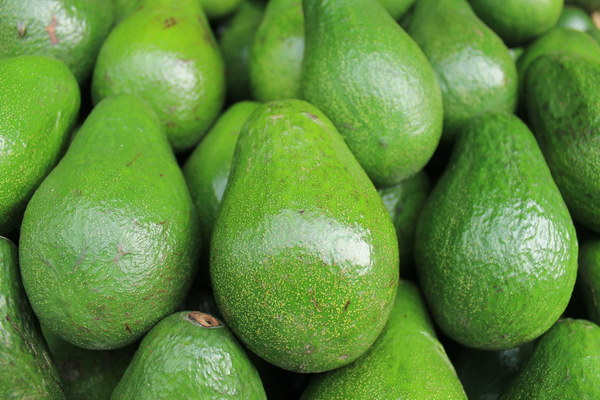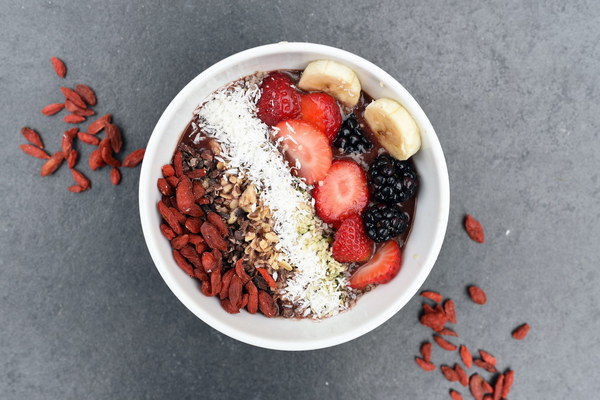Revitalize Your Body with Dietary Adjustments A Guide to Overcoming Fatigue
In today's fast-paced world, fatigue has become a common concern for many individuals. Whether it's due to stress, poor sleep habits, or a lack of physical activity, feeling tired can significantly impact our daily lives. While there are numerous remedies available to combat fatigue, one of the most effective ways to revitalize your body is through dietary adjustments. This article will explore various food options and nutritional strategies that can help you overcome fatigue and restore your energy levels.
1. Prioritize whole foods
Whole foods, such as fruits, vegetables, whole grains, lean proteins, and healthy fats, are essential for providing your body with the necessary nutrients to combat fatigue. These foods are rich in vitamins, minerals, and antioxidants that can help boost your energy levels and improve overall health.
1.1. Fruits and vegetables
Fruits and vegetables are packed with essential nutrients that can help combat fatigue. For instance, bananas are a great source of potassium, which can help maintain normal muscle function and prevent muscle cramps. Additionally, berries are rich in antioxidants, which can help reduce inflammation and improve energy levels.
1.2. Whole grains
Whole grains, such as brown rice, quinoa, and oatmeal, are rich in B vitamins, which are crucial for energy production. B vitamins, such as thiamine, riboflavin, niacin, vitamin B6, vitamin B12, and folate, play a vital role in converting food into energy.
1.3. Lean proteins
Lean proteins, such as chicken, turkey, fish, tofu, and legumes, are essential for muscle repair and energy production. These foods contain amino acids, which are the building blocks of protein and help maintain muscle mass.
1.4. Healthy fats
Healthy fats, such as avocados, nuts, seeds, and olive oil, are important for energy production and absorption of fat-soluble vitamins. These fats can help improve brain function and reduce inflammation, leading to increased energy levels.
2. Stay hydrated

Proper hydration is crucial for maintaining energy levels and preventing fatigue. Water helps transport nutrients throughout your body, regulates body temperature, and supports kidney function. Aim to drink at least 8 cups (64 ounces) of water per day, and adjust your intake based on your activity level and climate.
3. Avoid processed foods and caffeine
Processed foods and excessive caffeine intake can contribute to fatigue. Processed foods are often high in sugar, unhealthy fats, and empty calories, which can leave you feeling more tired than before. Additionally, caffeine can disrupt sleep patterns and lead to dehydration, further exacerbating fatigue.
4. Include energy-boosting foods
Some foods are specifically known for their energy-boosting properties. These include:
4.1. Dark chocolate
Dark chocolate contains caffeine and theobromine, which can provide a temporary energy boost. However, be mindful of the sugar content and consume in moderation.
4.2. Beets
Beets are rich in nitrates, which can improve blood flow and increase endurance. Consuming beets before a workout can help enhance performance and reduce fatigue.
4.3. Green tea
Green tea contains caffeine and L-theanine, which can help improve mental alertness and reduce fatigue. It's also a good source of antioxidants.
5. Consider nutritional supplements
In some cases, dietary adjustments may not be enough to overcome fatigue. If you suspect a nutrient deficiency, consider consulting with a healthcare professional to determine if nutritional supplements are appropriate for you.
In conclusion, dietary adjustments can significantly impact your energy levels and help you overcome fatigue. By focusing on whole foods, staying hydrated, avoiding processed foods and caffeine, and incorporating energy-boosting foods, you can revitalize your body and restore your energy levels. Remember that it may take some time for your body to adjust to these changes, so be patient and persistent in your efforts to improve your diet and overall health.









